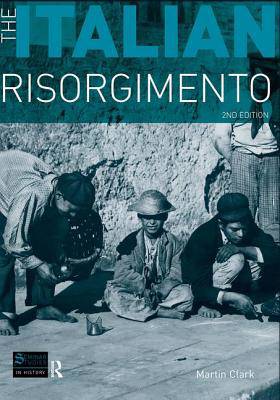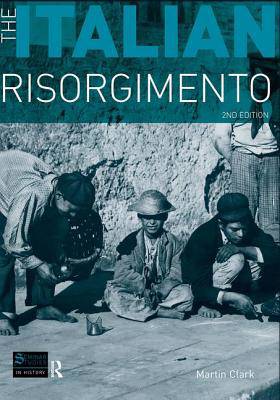
- Afhalen na 1 uur in een winkel met voorraad
- In januari gratis thuislevering in België
- Ruim aanbod met 7 miljoen producten
- Afhalen na 1 uur in een winkel met voorraad
- In januari gratis thuislevering in België
- Ruim aanbod met 7 miljoen producten
Omschrijving
The Unification of Italy in the nineteenth century was the unlikely result of a lengthy and complex process of Italian revival (Risorgimento). Few Italians supported Unification and the new rulers of Italy were unable to resolve their disputes with the Catholic Church, the local power-holders in the South and the peasantry. In this fascinating account, Martin Clark examines these problems and considers:
- The economic, social and religious contexts of Unification, as well as the diplomatic and military aspects
- The roles of Cavour and Garibaldi and also the wider European influences, particularly those of Britain and France
- The recent historiographical shift away from uncritical celebration of the achievement of Italian unity.
Did 'Italian Unification' mean anything more than traditional Piedmontese expansionism? Was it simply an aspect of European 'secularisation'? Did it involve 'state-building', or just repression? In exploring these questions and more, Martin Clark offers the ideal introductory account for anyone wishing to understand how modern Italy was born.
This new edition has been revised in the light of recent research and now has a greater emphasis on the losers of the conflict, the impact of Unification on the South, and the complexity of the political realities of the times. It has also been updated with useful additional material such as a Whos Who and a plate section to go alongside its carefully chosen selection of original documents.
Specificaties
Betrokkenen
- Auteur(s):
- Uitgeverij:
Inhoud
- Aantal bladzijden:
- 176
- Taal:
- Engels
- Reeks:
Eigenschappen
- Productcode (EAN):
- 9781138137073
- Verschijningsdatum:
- 26/11/2015
- Uitvoering:
- Hardcover
- Formaat:
- Genaaid
- Afmetingen:
- 170 mm x 244 mm
- Gewicht:
- 485 g

Alleen bij Standaard Boekhandel
Beoordelingen
We publiceren alleen reviews die voldoen aan de voorwaarden voor reviews. Bekijk onze voorwaarden voor reviews.









